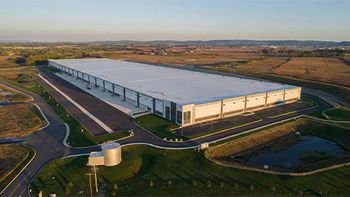
Bayer to manufacture 160M doses of CureVac’s Covid-19 vaccine
In Phase III at the moment, mRNA dose will be produced at Bayer's Wuppertal, Germany facility
In today’s joint press briefing alongside German Health Minister Jens Spahn, minister-president of North Rhine-Westphalia, Armin Laschet, and CEO of CureVac N.V., Franz-Werner Haas, Bayer AG and president of Bayer’s pharmaceuticals division, Stefan Oelrich, announced that the big pharma will indeed be manufacturing CureVac’s Covid-19 vaccine at its Wuppertal, Germany facility.
Bayer, which has not produced vaccines prior, is aiming to manufacture 160 million doses in 2022.
“Following discussions with the German government, it has become clear that current manufacturing capacities for vaccines need to be increased, particularly for potential variants of the SARS-CoV-2 virus. This includes the need to expand production capacity as well as related manufacturing expertise in Germany,” Oelrich said.
“… Bayer is already supporting CureVac with the further development, supply and key territory operations of CureVac's vaccine candidate through its expertise and established infrastructure in areas such as clinical operations, regulatory affairs, pharmacovigilance, medical information, supply chain management as well as support with country operations within the European Union and selected additional markets. … Since the announcement of our alliance between Bayer and CureVac earlier this year, we have diligently assessed our ability to further contribute with end-to-end manufacturing.”
CureVac's candidate is currently in
Newsletter
Stay ahead in the life sciences industry with Pharmaceutical Commerce, the latest news, trends, and strategies in drug distribution, commercialization, and market access.




